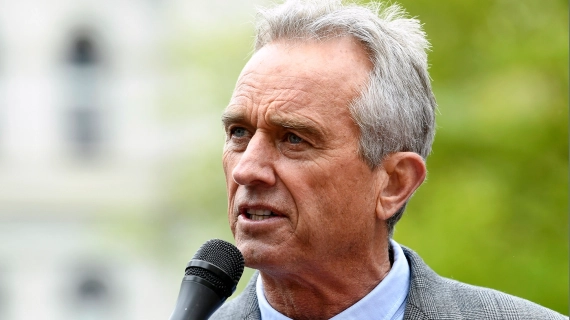Presidential contender Robert F. Kennedy Jr. presented a daring proposition during a rally in Michigan on April 21st to integrate the entire U.S. budget into the blockchain technology.
This groundbreaking initiative aims to boost transparency by providing access to budget specifics to all Americans, 24⁄7.
Kennedy emphasized the potential for extensive oversight, declaring, “We will have 300 million pairs of eyes on our budget, and if someone is allocating $16,000 for a toilet seat, everyone will be informed.”
His vision signifies a shift towards increased accountability, empowering taxpayers to continuously monitor the utilization of their funds.
The idea has garnered substantial support from cryptocurrency enthusiasts, who took to social media to commend the proposal’s innovative potential in combating corruption.
One supporter noted, “The system of checks and balances in our government is ineffective if the branches collude in corruption (especially the president and congress); it is time for the public to hold them answerable.”
This sentiment underscores a broader call for a transparent public financial system, seen as an ideal use case for blockchain technology beyond its applications in supply chain management.
Despite the excitement, there are critics who view Kennedy’s plan as a move towards implementing a central bank digital currency (CBDC), a concept he has previously opposed on privacy grounds.
FURTHER READING: Positive Outlook Following Bitcoin’s Fourth Halving Amid ETF Expansion and All-Time Highs
Opponents argue that his blockchain initiative indirectly endorses the idea of a CBDC, a position he has explicitly refuted, instead advocating for a halt to any steps towards such a currency system in the U.S.
Kennedy, an independent candidate in the upcoming U.S. presidential race, has consistently shown support for decentralized technologies like Bitcoin.
His dedication is underscored by his acceptance of Bitcoin for campaign contributions, a pioneering move among presidential hopefuls.
Moreover, Kennedy intends to support the U.S. dollar with Bitcoin if elected, signaling a significant shift towards integrating digital currencies at a national level.
The emergence of decentralized financial platforms is reshaping political campaigns and ideologies worldwide.
This trend is exemplified by the election of Bitcoin-friendly Javier Milei as the Argentine president in December 2023, who campaigned on reducing governmental intervention.
Kennedy’s proposal aligns with a growing movement challenging traditional centralized financial systems, advocating for alternatives that provide enhanced transparency and public oversight.
To submit a cryptocurrency press release (PR), please email [email protected].

